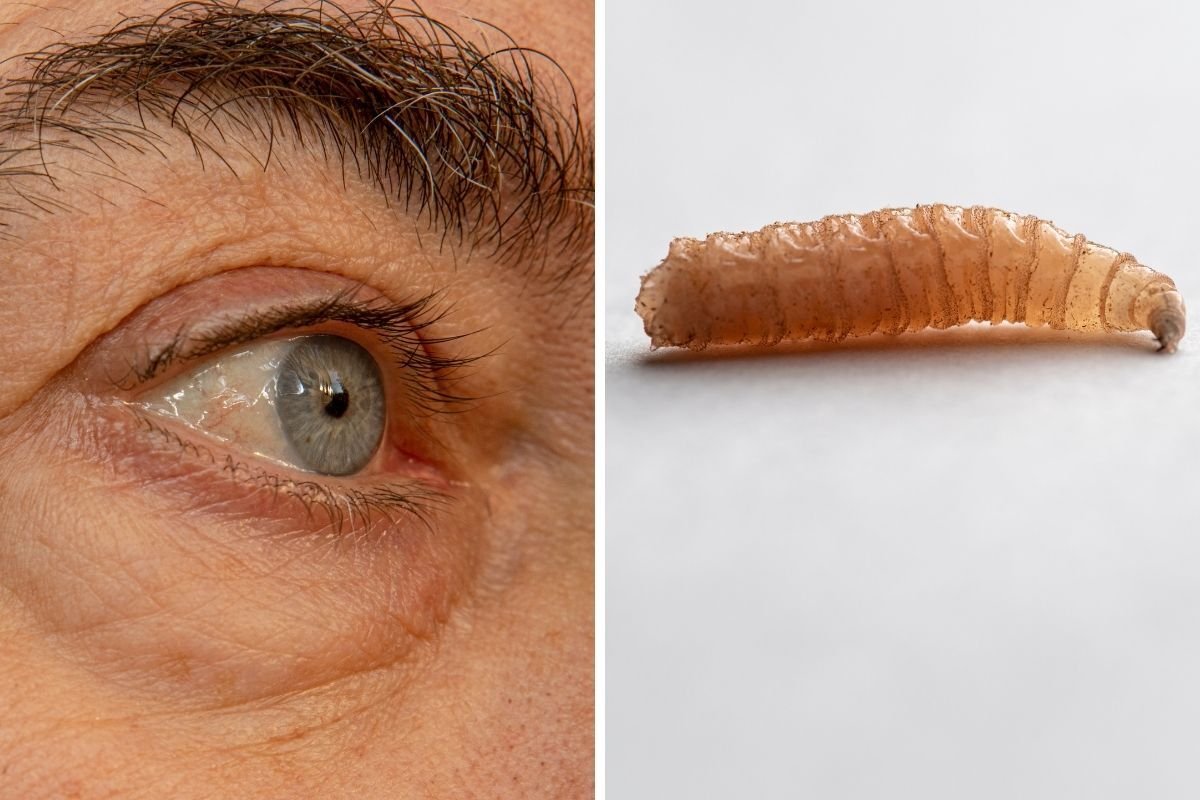A 53-year-old man was found to have more than a dozen maggots in his eye following a spot of gardening, according to a medical case report.
The individual from France presented to the emergency department complaining of itching in his right eye that he had been experiencing for several hours, the authors of the case study, published in The New England Journal of Medicine, said.
Earlier that day, the man had been gardening near a horse and sheep farm when he felt something enter his right eye.

Doctors conducted an eye examination, finding that he had 20/20 vision. But the right eye appeared to be red and irritated.
Eventually, doctors spotted more than a dozen translucent fly larvae in the outer structures of the eyeball. Medics were even able to capture video footage of the man's eye, showing the larvae moving around.
Fortunately, doctors were able to remove the larvae manually using forceps. They were later identified as being larvae from the species Oestrus ovis, otherwise known as the sheep bot fly.
According to the authors of the study, a fly of this species had likely landed in or around the man's eye and deposited the larvae.
The sheep bot fly belongs to the larger bot fly family—a group of flies that appear almost bee-like in appearance, according to the Encyclopedia Britannica. The larvae of these flies are parasitic on various types of mammals.
In the case of Oestrus ovis, which is found around the world, the flies deposit their larvae in the nostrils of sheep, although hosts can also include goats or wild ruminants, such as deer.
Even though the larvae have been found in other animals, the fly cannot complete its life cycle without being deposited into the nose of sheep, according to the University of Florida, Institute of Food and Agricultural Sciences.
The eggs hatch while still inside the female fly and she will deposit a droplet containing the live larvae on the nose of a sheep. While the flies target the nose, in some cases, the larvae can accidentally enter the eye socket of the animal.
Rarely, sheep bot fly larvae can enter the eye sockets of humans—as was the case with the 53-year old Frenchman—most likely in areas where people live in close proximity to livestock.
One study published in the journal BMC Ophthalmology found that Oestrus ovis infecting humans is a rare event, with only 295 cases reported worldwide between 1918 and 2017.
When the larvae are found in and around the eyeball of humans, doctors call this infection ophthalmomyiasis. The larvae, which have hooks in their mouths and tiny spike-like structures called spicules on their bodies, can cause, discomfort and irritation to the eye.
This is usually treated by administering a local anesthetic and removing the larvae. Patients are also often given antibiotics or antiseptic drops following the removal of the larvae. In the case of the 53-year-old, doctors treated him with topical antibiotics and at a 10-day follow-up his symptoms had disappeared, according to the case study.
Patients with ophthalmomyiasis usually find that their symptoms improve rapidly after the larvae are removed. But in rare cases, the larvae can burrow into the inner structures of the eyeball. This can result in blindness.
Uncommon Knowledge
Newsweek is committed to challenging conventional wisdom and finding connections in the search for common ground.
Newsweek is committed to challenging conventional wisdom and finding connections in the search for common ground.
About the writer
Aristos is a Newsweek science reporter with the London, U.K., bureau. He reports on science and health topics, including; animal, ... Read more
To read how Newsweek uses AI as a newsroom tool, Click here.








